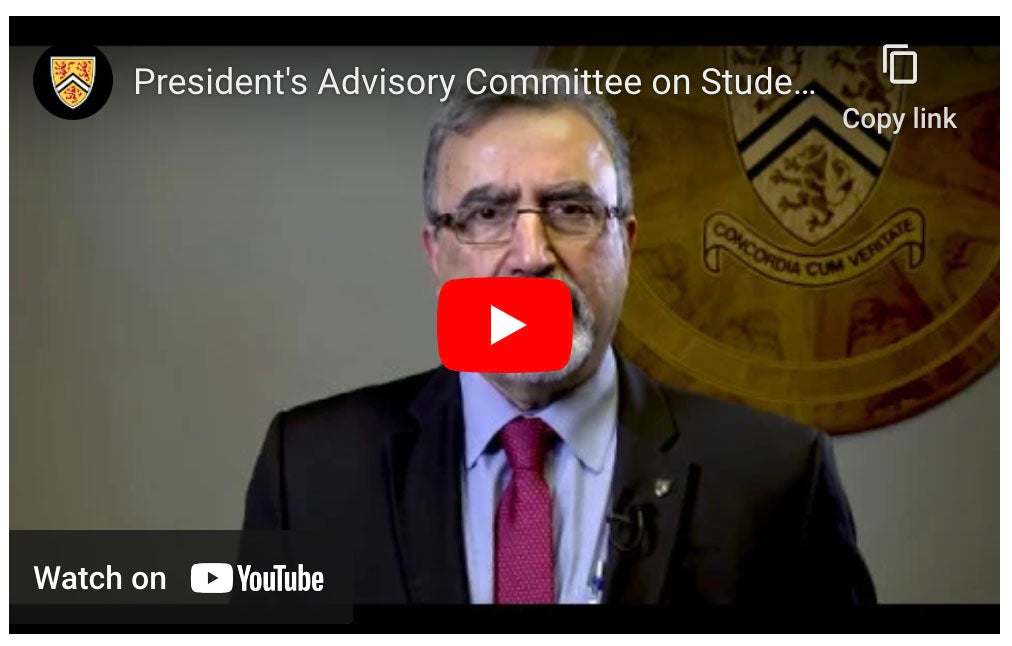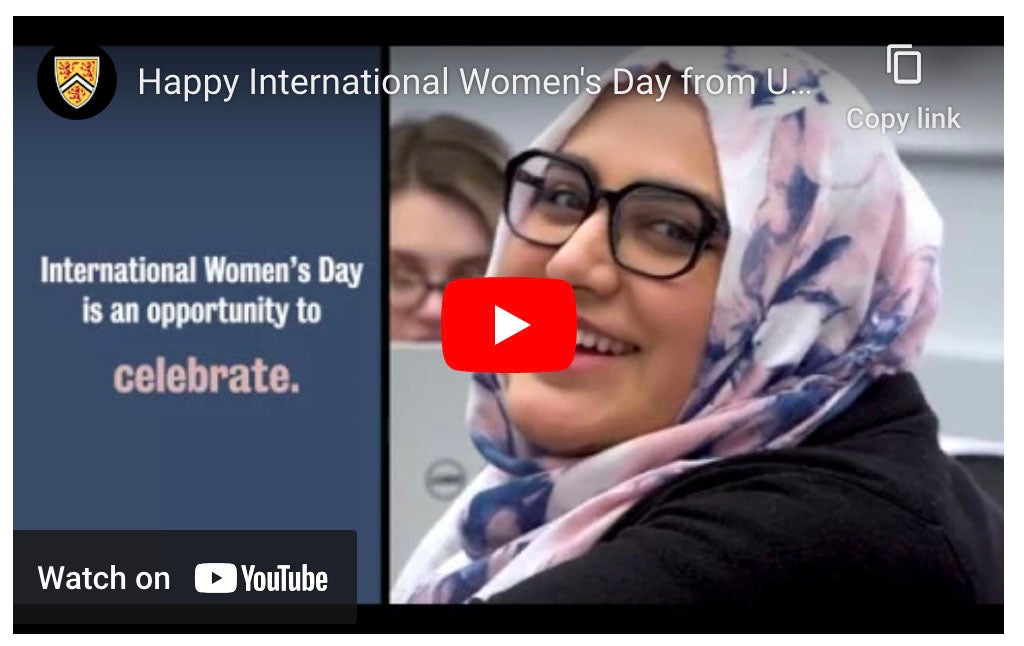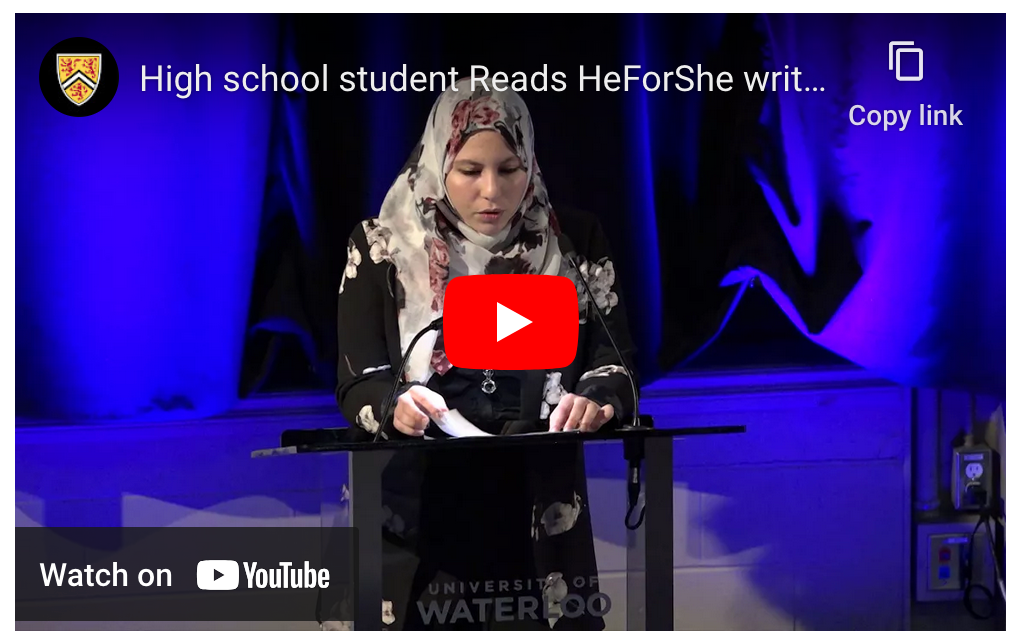Editor:
Brandon Sweet
University Communications
bulletin@uwaterloo.ca
Student mental health forum takes place March 14

President Feridun Hamdullahpur has received the report of the President’s Advisory Committee on Student Mental Health (PAC-SMH) and will share the recommendations on how to strengthen student mental health at a public forum next week.
"I invite you to join me, Director of Campus Wellness, Walter Mittelstaedt, and the PAC-SMH committee members at the upcoming President’s Advisory Committee on Student Mental Health Forum on March 14," the president wrote in a memo distributed to students, faculty, and staff on Tuesday. "I encourage you to register and attend the Forum and have the opportunity to discover each of the recommendations put forward by the committee and also hear about our next steps to achieve positive change on campus."
Attendees are invited to take time to explore, ask questions, and provide feedback to committee members as the University community continues to work together to improve student wellness and support across campus.
The student mental health forum will take place from 2:00 p.m. to 3:30 p.m. on Wednesday, March 14 at Federation Hall.
Waterloo celebrates International Women's Day

Attendees gather at the University's 13th annual International Women's Day Dinner at Fed.
By Sabrina Khandakar.
Around the world, March 8 marks International Women’s Day, a global initiative celebrating the social, economic, cultural and political achievements of women. The day also marks a call to action for accelerating gender parity.

On Friday, March 2, the University of Waterloo celebrated its 13th annual International Women’s Day Dinner, an event that hosted 320 guests to acknowledge the important role women have in our society. In attendance were the 2018 HeForShe STEM Scholarship recipients in addition to the HeForShe writing contest winners, including high school students from Waterloo Regional District School Board.
Waterloo’s Vice-President, University Research Charmaine Dean addressed the crowd as the keynote speaker and noted, “It’s important to recognize how far women have come in obtaining equity and stature and to recognize there’s still a long way to go.”
In the three years since Waterloo was invited to join the UN Women’s HeForShe campaign, the number of girls and women in STEM outreach experiences and activities have increased to 35 per cent, exceeding the University’s original goal. Waterloo is on track to raise the overall female faculty representation to 30 percent by 2020, with a current representation of 29 per cent.
To mark International Women’s Day, there will be a screening tonight of the movie Wonder Woman at the Princess Twin Cinema, located at 46 King St. N. Waterloo. Doors open at 6:30 p.m. for a Popcorn and Mocktail Hour, followed by a Women in Engineering panel discussion, keynote address and the highly acclaimed movie.
Open to everyone, the evening is jointly sponsored by the University’s Women in Engineering and HeforShe programs. Although the event is free, people are encouraged to bring a small donation for the YWCA of KW. The money collected will go toward local shelters and girls’ programs. Registration is required.
HeForShe Writing Contest winners named
By Natalie Quinlan.

The winners of the 2018 HeForShe writing contest have been selected, and their work has been published in a special anthology presented by the Book Store and Writing Centre in support of the HeForShe 10x10x10 IMPACT framework.
President Feridun Hamdullahpur made the announcement at the International Women's Day dinner at Federation Hall on Friday, March 2.
For the first time, content was provided by not only Waterloo students, faculty, staff, and alumni, but also by high school students from the Waterloo Regional District School Board (WRDSB). In total, 97 secondary students entered the HeForShe writing contest. Participants were asked to consider how gender equity fits into a larger equity story, and explore where there are overlaps and connections between gender and race, ethnicity, age, ability, class, faith and/or sexuality.
“Our commitment to gender equity is not something we take lightly,” wrote Feridun Hamdullahpur. “This collection of poetry, fiction and non-fiction prose from students, faculty, staff and alumni strengthens our resolve to focus on equity in general and gender equity. Each of the submissions focuses on the themes of intersections and reflects on how gender equity fits into the larger equity story.”
Each entry was reviewed by a panel of judges from both the University and WRDSB.
Category winners included:
UWaterloo Creative Non-Fiction Winner - Michelle Pressé (Office of Research) - “The Inherent Uncoolness of Girl”
WRDSB Creative Non-Fiction Winner - Kaleigh Wiens* - “Asexuality: Not Just for Flowers and Snowflakes”
UWaterloo Poetry Winner - Eleanor Sudak - “Today We Say Thailand”
WRDSB Poetry Winner - Lama Abdallah* - “Fluent in Excuses”
UWaterloo Fiction Winner - Sanjay Veerasammy - Untitled
WRDSB Fiction Winner - Rose Danen* - “The Broken Road”
*high school entrant
Along with the six winning entries, 35 other pieces were also selected for inclusion in the anthology.
University judges in the creative non-fiction category included Professor Corey Johnson (Recreation & Leisure, Faculty of Applied Health Sciences), Cheryl Maksymyk (Indigenous Student Services Co-ordinator, St. Paul’s University College), Professor Melanie Campbell (Director (GWPI), Department of Physics and School of Optometry).
WRDSB creative non-fiction judges included James Bond, Victoria Ford, and Nick Manning.
University judges in the poetry category included Professor Sarah Tolmie (English Language and Literature, Faculty of Arts), Tommy Mayberry (Instructional Developer, Centre of Teaching Excellence), Professor Sorouja Moll (Drama and Speech Communication, Faculty of Arts), and undergraduate student Beck Mallozzi (Glow Centre for Sexual and Gender Diversity).
WRDSB poetry judges included Courtney Waterfall, Ted Martin, Dionne Maxwell, Kylie Penticost, and Nick Manning.
University judges in the fiction category included Professor Marlee Spafford (Associate Dean of Science, Undergraduate Studies), undergraduate student Marisa Benjamin (Imprint), undergraduate student Emily West (Operations Co-ordinator, Games Institute), and undergraduate student Patricia Balbon (iGem).
WRDSB fiction judges included Lila Read, Stephanie Longeway, and Nick Manning.
Thank you as well to panel co-ordinators including Clare Bermingham, Amy Greene, Valerie Walker and Dr. Nadine Fladd, all from the Writing and Communication Centre.
Here is a video of high school student Lama Abdallah reading her winning poem "Fluent in Excuses."

Nutrition Month "myth vs. fact" for March 8
Here's the latest Nutrition Month "myth vs. fact" provided by Health Services Dietitian Sandra Ace:
Myth: People with arthritis should avoid foods in the nightshade family.
Fact: Nightshades are a botanical grouping of plants, including potatoes, tomatoes, eggplants and all varieties of peppers, which contain a chemical compound blamed for causing joint pain. It is theorized that the glycoalkaloid solanine, a chemical in nightshades that protects these plants from insects or other predators, has inflammatory properties in some individuals.
An online search brings up a great deal of anecdotal testimony linking nightshades to arthritis symptoms. Anecdotal testimony is not backed by scientific research but relies on the experience of someone who makes a change and experiences a perceived change in health. While future research may reveal a link between nightshades and inflammatory conditions such as arthritis, there is currently no research-based reason to eliminate these foods.
Teasing out a connection between food and arthritis symptoms is difficult because many factors impact this broad group of inflammatory conditions. If you strongly suspect that eating a certain food is triggering a reaction, avoid the food completely for one or two weeks then add it back in, keeping track of symptoms in a food diary. If a specific food seems to increase symptoms and you decide to eliminate it, replace it with a food containing similar nutrients. Most of the foods in the nightshade family are good sources of vitamin C, so if you avoid them be sure to include other vitamin C rich vegetables and fruits. The Arthritis Society’s Good Food Guide maintains that arthritis can’t be cured with diet, but encourages individuals to “maximize nutrients and minimize extra calories by choosing nutrient-rich foods like whole grains, fruits, vegetables, lean protein and lower-fat dairy products.”